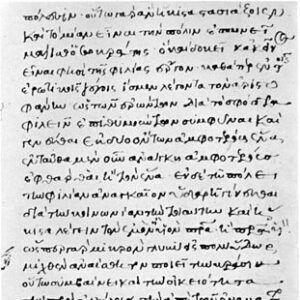In political science, Politics by the Ancient Greek philosopher Aristotle stands among the most cardinal works.
First, a small introduction to Aristotle’s previous work is essential. In short, the Nicomachean Ethics discusses how a person should live. While the fundament of ethics is how we act as individuals, politics is about how we behave in communities. Yet, the two are closely related to one another.
About Politics
Politics is a series of eight books. Practically, the name means “things regarding the polis.” Remember, the polis is an Ancient Greek city-state. Hence, the English word politics!

In the books, Aristotle explains various fundaments. First of all, the goal of every community is to do good. While families are the lowest form, the polis is the highest form. Thus, it aims to do the greatest good. Further, the rule of a household, village, or city-state varies only in size. Besides that, it is the same thing. All these communities form naturally.
Further, Aristotle believes that there are six forms of government (hence the table below). He refers to them as constitutions. The ideal one is the one aiming for the common good.
The rule of one serving the common good is a monarchy. On the opposite, rule by one serving the ruler is a tyranny. Further, the rule of few for the common good is an aristocracy. On the other hand, the rule of few for their interest is an oligarchy. Lastly, the rule of many for the common good is a polity. The negative is democracy. Hence, the highest form of government as perceived by Aristotle is polity.

In today’s sight, the most controversial part of Politics is the polemics on slavery. Yet, at the time, slavery was “normal.” Aristotle says that slaves are an essential part of a household. But, he opposes the existence of slaves forced to be slaves by the law. On the other hand, he accepts so-called “natural slaves.” These slaves are said to benefit from the work. Hence, their owner also profits.
